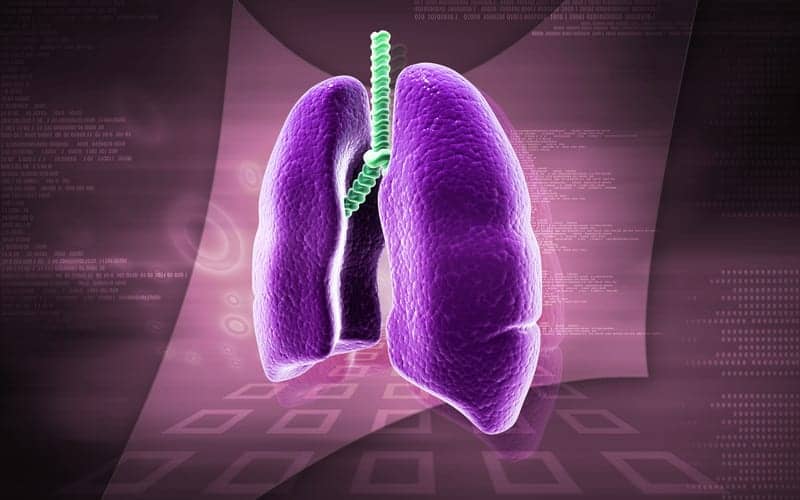A new biochemical process that controls how air enters and leaves the lungs during normal lung function and during asthma has been identified.
The scientists — funded by the Medical Research Council (MRC) and working in collaboration with the National Heart and Lung Institute at Imperial College London — used state-of-the-art methods to dissect the biochemical pathways involved in the contraction of the airway muscle.
By disrupting these biochemical pathways in a mouse model of asthma the scientists discovered that they could prevent airway narrowing and maintain normal lung function.
Lab experiments on mice, such as this, allow us to establish causal effects in this species, but it is too early to say whether these results apply to people.
Co-lead author of the study Professor Andrew Tobin from the MRC Toxicology Unit which is located at the University of Leicester, said: “This is a real breakthrough in our understanding of how the lung works in both normal conditions and during disease. The fundamental biochemical process that we have discovered will ultimately allow us to better design ways to develop new treatments for those suffering from asthma and chronic obstructive pulmonary disease (COPD).”










